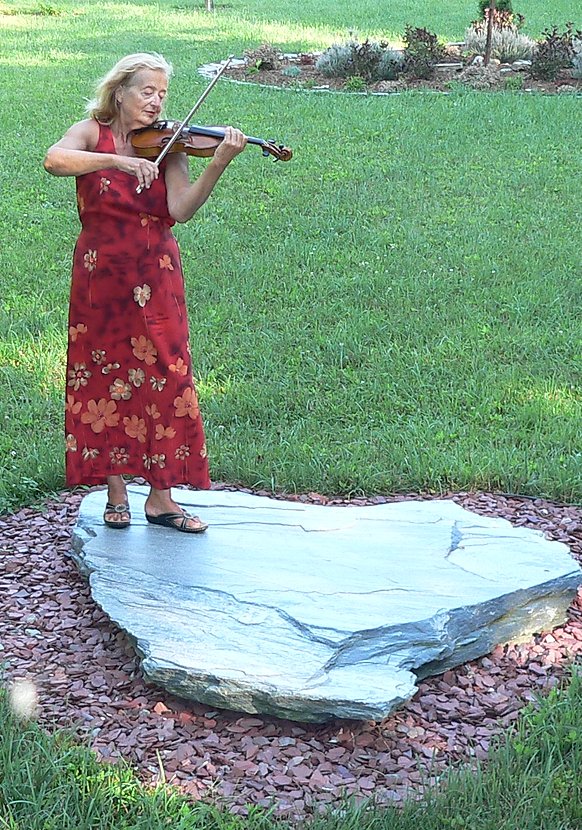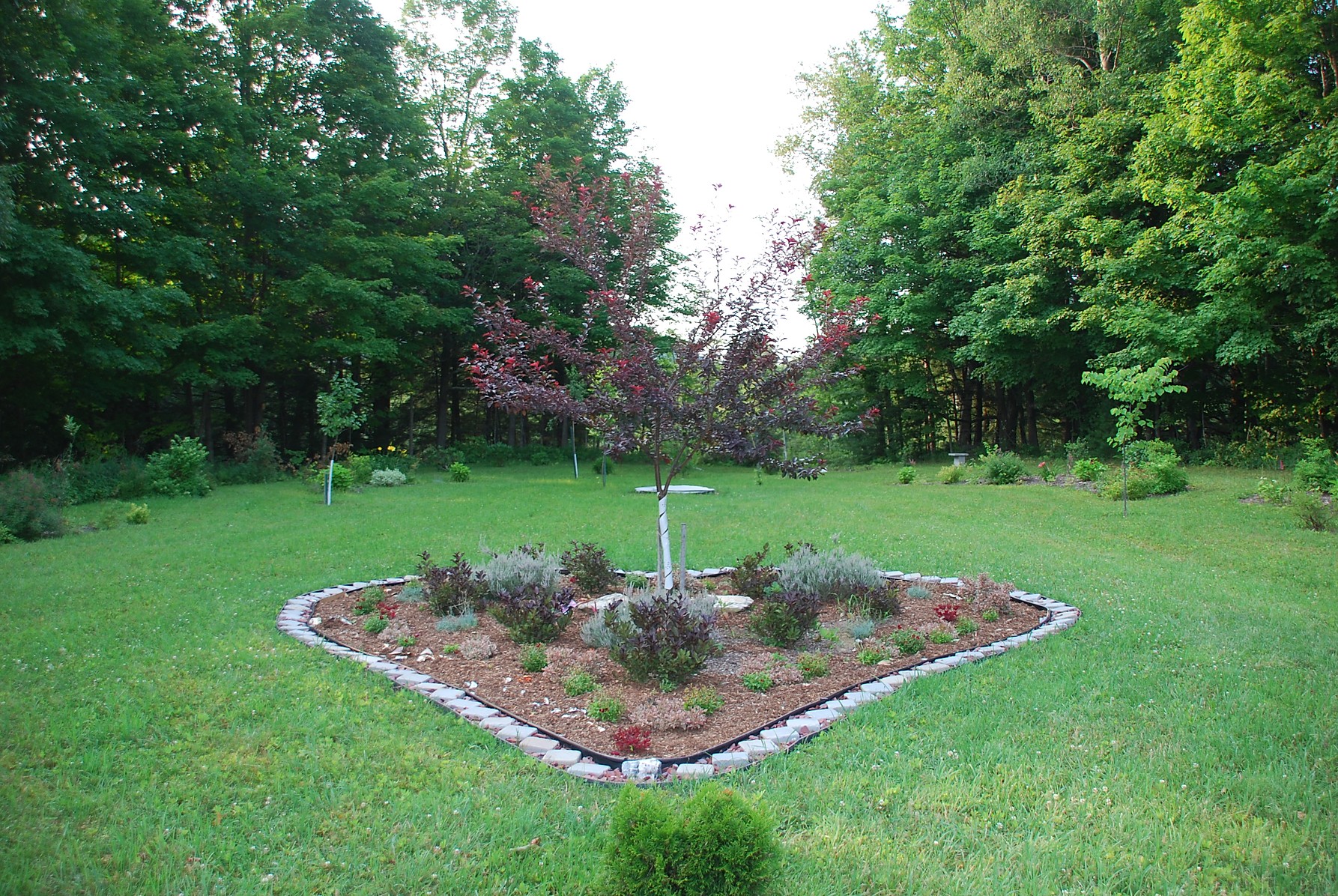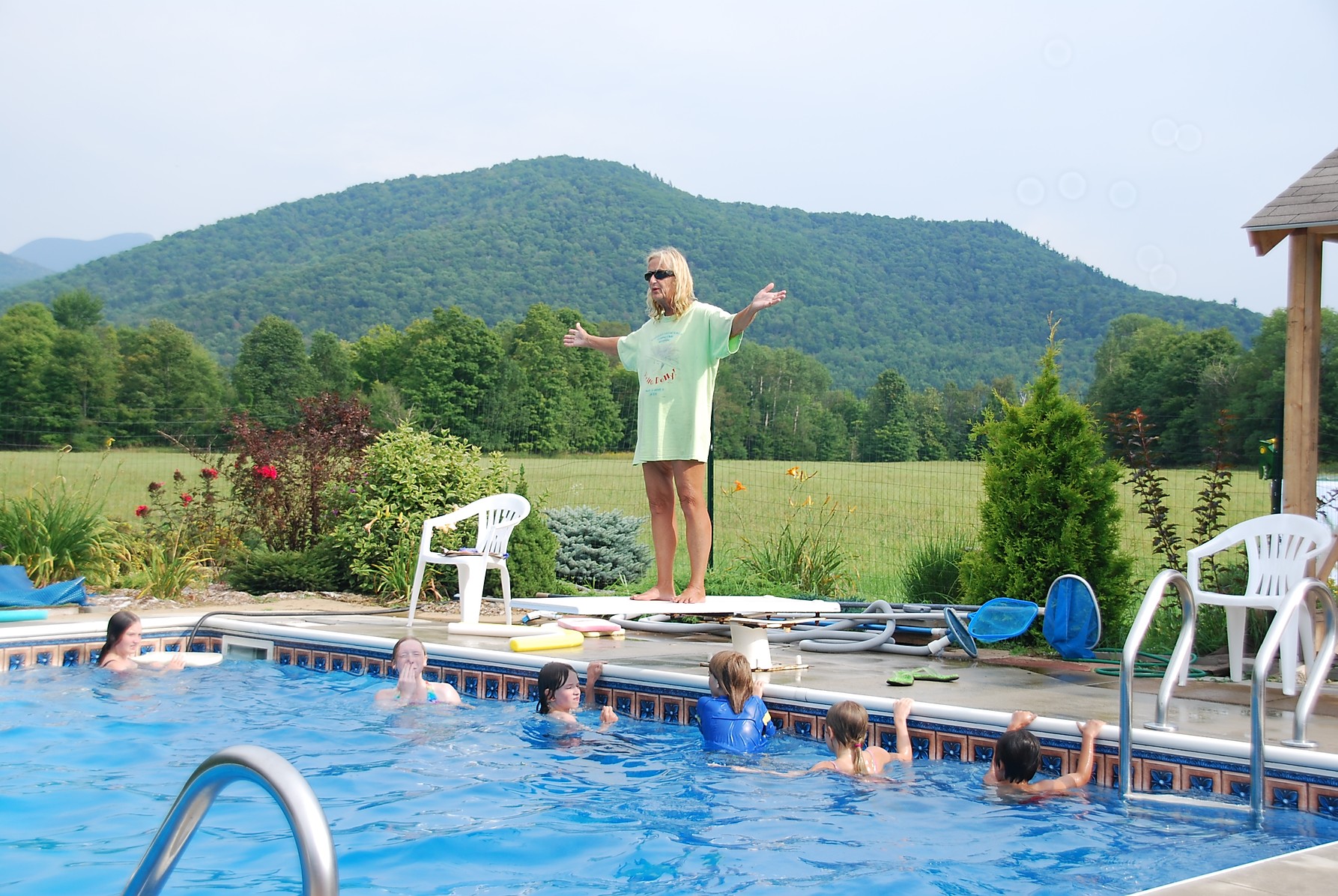Alison Anand started playing with the Vermont Philharmonic since its inception. That’s 61 years ago. She began as a teenager, encouraged by her violin teacher, Lewis Fink. She was a gifted child, starting piano at the age of three. She started her violin lessons in grade school, and has been playing ever since. She became smitten with playing in orchestras after performing in the Winooski Valley Music Festival, and that’s when she joined the VP.

She had agreed to meet with my husband, Ken, and myself to talk briefly about her experience with music over the years, as the Vermont Philharmonic’s longest playing musician. We met in Waterbury over Bagels and coffee (well, tea for me and Alison), as the halfway point between her home in Richmond and ours in Berlin. As we munched and sipped, Alison filled us in on her music career.
Alison has had several hiatus’ with the VP, most notably to attend college and graduate school. She graduated from the Eastman School of Music and the University of Rochester and holds a Master of Arts degree in music from the University of Vermont. As a side note, one other violin student of Mr. Fink's has made a career in music here in Vermont, though not as a performer or teacher, but as a critic: Jim Lowe, the arts and music critic for the Rutland Herald and Times Argus.
Throughout her life, Alison has been a strong advocate for the arts and for education. While the violin has been central to her life—She performs with several orchestras and chamber ensembles —her music career has been focused on teaching. Her major was in music theory and composition and her career in music education includes teaching at the elementary, high school and college levels. Alison also performs in choral groups, is an experienced choral conductor (she has directed both the Richmond Congregational Church choir and the Barre Choraleers over a period of 20 years) and has had a long association with Burlington's Lyric Theatre. And if that is not enough, her “second” career is teaching swimming. She began to teach swimming in her high school years. This second job also became a life-long passion. In college, she was a competitive synchronized swimmer, uniting her love of both music and swimming into performing arts. Through her extensive career as a private music teacher, Alison has developed her expertise at customizing the learning experience for individual students. She has transferred this concept to her Aquatic School in a unique manner which is not found in other settings.
An 8th generation Vermonter, community is important to Alison. She is an active volunteer on both her local school board and planning commission. A modern-day renaissance person, she also has an MS in Natural Resources Planning from UVM, and established a business with her father (a retired civil engineer) working on surveying and landscape design projects for about 10 years. Her enthusiasm for landscape design has not waned. The yard of her historic farmhouse contains not only a swimming pool, but also a Garden of Hearts, which was originally conceived as a meditation area for pool clients. The trees and shrubs are planted in various designs of hearts with a view of Camel's Hump across the open meadow. She has expanded its function to include weddings and other ceremonies, at which she can also offer live music, either solo violin or chamber.

A talented artist and educator, Alison feels strongly that we need to use the arts to bring people together, especially in these divisive times. “The value of music is the sharing between generations and cultures. It’s a common language that can help unite us.” One of the things she loves about the VP is the cross between the older folks and the younger less-experienced ones. When she started as a teen, she benefited from the seasoned middle-aged musicians who surrounded her. Now she enjoys being the one who can help mentor the newer musicians.
Alison has two sons—one a realist painter and the other an engineer/inventor—as well as two twin grandkids, all living in Vermont. She claims that both music and invention are strong family traits going back generations. So, besides her work and her family, what does Alison like to do in her ‘spare’ time? “I love to read, mostly non-fiction. Government and Economics. Right now I’m reading Transatlantic Traumas by Stanley Sloan. An excellent book. My reading interests also include health and alternative medicine.”
When asked if she could invite only three people—either dead or living—to a small dinner party, who would they be. “That’s a tough one, but I would definitely invite Jospeh Haydn. He’s one of my favorite composers and I love his sense of humor. I would also invite Joseph Stiglitz, an American economist, public policy analyst, and a professor at Columbia University. The conversation would be fascinating. And, ah, who would the third person be? Another Joseph? No, I think I would like to invite Abraham Lincoln, because of his character. He has been a role model for us throughout the years.”
Our quick interview with Alison ended up lasting almost two hours. She has led—and is leading —a fascinating life. We went off topic frequently; there was so much to discuss, from her family history to her present life of teaching. But one message that Alison wanted us to make sure we got across is how important the Arts are, to all of us, whether we are painters, musicians, scientists, inventors, or whatever. The Arts are central to our being. She looked directly into our eyes and said “The Arts teach us how to think, not necessarily what to think, and that is so vital to how we interact with the world.” I thought about this onthe way home. She is absolutely right. We could learn so much from this extraordinary and highly energetic musician and teacher.
By Polly McMurtryDecember 2019
